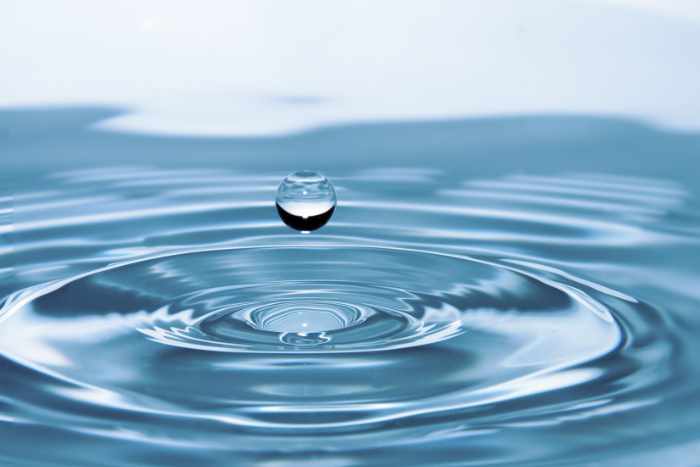If you live in Louisville, KY, you know how important it is to have clean and safe water for your home. Louisville Water Company provides high-quality drinking water to about 850,000 people in the area. However, you may still want the best water treatment system for your home to provide extra protection and peace of mind.

Finding the Best Water Treatment System for Your Home
A water treatment system can filter out contaminants that may be present in your water source, such as chlorine, lead, nitrates, and perfluorinated chemicals. These contaminants can affect your water’s taste, smell, and even health.
But how do you choose the best water treatment system for your home? There are many factors to consider, such as the type of water you have, the features you want, and the cost and maintenance of the system. Our guide will help you find the best water treatment system for your home that suits your needs and budget.
Types of Water Treatment Systems
Two main types of water treatment systems can improve your home’s water quality: point-of-entry (POE) systems and point-of-use (POU) systems. POE systems treat all the water that enters your house, while POU systems treat water at a specific faucet or appliance.
1. Point-of-Entry (POE) Systems
POE systems filter or soften all the water that enters your house. They are installed at the main water line. Two common POE systems exist: whole-house filtration systems and water softeners.
Whole-House Filtration Systems
Whole-house filtration systems are made to eliminate things like sediment, chlorine, volatile organic compounds (VOCs), and heavy metals from the water. These systems consist of a filter unit that is installed at the point where the water supply enters the house.
Benefits:
- It improves the taste, odor, and appearance of your water.
- Protects your plumbing and appliances from corrosion and scale buildup.
- Reduce the risk of exposure to harmful contaminants that can affect your health.
- Removes all contaminants, such as viruses, pesticides, and pharmaceuticals.
Drawbacks:
- Expensive to install and maintain.
- Requires frequent filter changes and backwashing.
Water Softeners
Water softeners are made to remove hard minerals from the water, such as calcium and magnesium ions. Hard water can cause damage to appliances, reduce the effectiveness of soap and detergents, and leave spots on dishes and glassware. Water softeners work by replacing the hard minerals with sodium ions.
Benefits:
- Makes your water feel softer and smoother on your skin and hair.
- Enhances the cleaning power of your detergents and soaps.
- Extends the lifespan of your plumbing and appliances by preventing scale buildup.
Drawbacks:
- Requires regular maintenance and the addition of salt.
- Adds sodium to the water, which may not be suitable for those on low-sodium diets.
- It may not be effective for all types of water hardness.
2. Point-of-Use (POU) Systems
POU systems are installed at the point where the water is consumed, such as the kitchen sink or refrigerator. These systems are ideal for small households or those who want to treat water for specific purposes, such as drinking, cooking, or making ice.
Reverse Osmosis Systems
Reverse osmosis systems are designed to remove impurities from water through a semipermeable membrane. These systems use pressure to force water through the membrane, leaving behind contaminants such as sediment, bacteria, viruses, and dissolved solids.
Benefits:
- Capable of removing more than 99.9% of all TDS (total dissolved solids) in drinking water, such as heavy metals, salts, and chemicals.
- Improves the taste and odor of water.
- Easy to install under the kitchen sink.
Drawbacks:
- Requires a lot of water pressure and produces a lot of wastewater.
- It can be expensive to install and maintain.
- Removes some beneficial minerals from water.
Faucet-Mounted Filters
Faucet-mounted filters are attached directly to the faucet and filter water as it flows through the spout. Using activated carbon or other materials, these filters eliminate chlorine, sediment, and volatile organic compounds.
Benefits:
- Easy to install and use.
- Reduces chlorine, lead, cysts, and other impurities from water, improving its taste and quality.
- Affordable and convenient, allowing users to switch between filtered and unfiltered water.
Drawbacks:
- It has a limited capacity and needs to be replaced frequently.
- Reduces the water flow and pressure from the faucet.
- It may not fit all types of faucets and may leak or break over time.
- Not effective against viruses, bacteria, or TDS.
Countertop Filters
Countertop filters sit on the kitchen counter and filter water as it is poured into the unit. These filters get rid of chlorine, sediment, and volatile organic compounds by using activated carbon or other materials.
Benefits:
- Easy to install and use.
- Larger capacity and a longer lifespan than faucet-mounted filters.
- Removes a wider range of contaminants, such as chlorine, lead, mercury, arsenic, pesticides, and VOCs (volatile organic compounds).
Drawbacks:
- Takes up space on the kitchen counter.
- Requires a connection to the faucet, which may interfere with its normal function.
- Filters need to be replaced frequently.
- It may not be suitable for high water flow rates.
Pitcher Filters
Pitcher filters strain water as it is poured into a container. These filters get rid of chlorine, sediment, and volatile organic compounds by using activated carbon or other materials.
Benefits:
- Easy to use and store.
- Improves the taste and odor of water by reducing chlorine, zinc, copper, and cadmium.
- Affordable.
Drawbacks:
- Limited capacity compared to other POU systems.
- Filters need to be replaced frequently.
- A slow filtration rate may not remove all contaminants from water, such as lead, fluoride, nitrates, or bacteria.
- It may also leach plastic chemicals into water over time.
Factors to Consider in Choosing the Right Water Treatment System
The sheer number of possibilities may make your head spin when looking for a home water treatment system. So, how do you choose the best water treatment system for your home? These are the factors you need to consider before making a decision:
Water Quality
The first step is to know what contaminants are in your water source. Different water treatment systems can remove pollutants like bacteria, viruses, chemicals, metals, and sediments. Water quality can be determined using a professional water testing service or a do-it-yourself water testing kit.
Size of Household
Your household size affects the demand for clean water. You must choose a water treatment system that meets your daily water consumption and peak flow rate. A system that is too small might not provide enough water pressure or volume, while a system that is too large might waste energy and water.
Available Space
Some water treatment systems need more space than others, like whole-house systems installed at the main water supply line or point-of-entry systems installed at specific faucets or appliances. You need to measure the space available and check the dimensions and installation requirements of the system you want to buy to ensure it fits your home.
Installation and Maintenance
Water filter maintenance is essential if you want to gain the benefits of the system. Installation and upkeep of a water treatment system depend on how complicated it is and how it is made. Some systems are easy to set up and keep up yourself, while others need professional assistance.
You also need to check the installation instructions and warranty terms of the system you choose and ensure you have access to qualified technicians and spare parts if needed.
Budget
The price of a water treatment system depends on many things, like the type, size, capacity, and system features. You also need to consider the ongoing maintenance and use costs, like buying new filters, using water, and paying for electricity. Before deciding on a system, consider the initial and ongoing costs.
Choosing the best water treatment system for your home is an important decision that affects your health, comfort, and budget. By knowing the types of water treatment systems and factors to consider before buying, you can find the best one for your needs.



